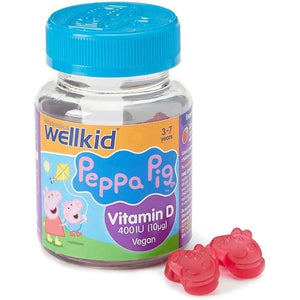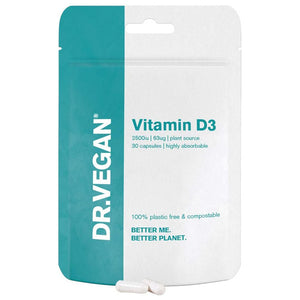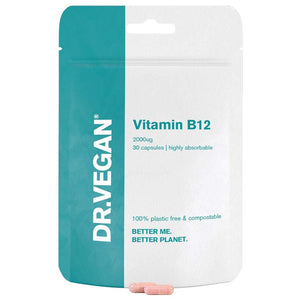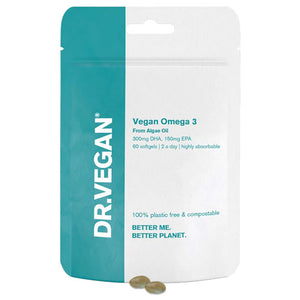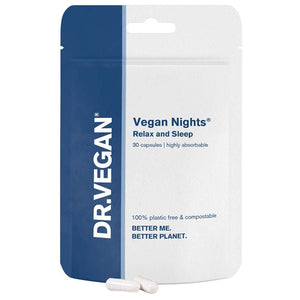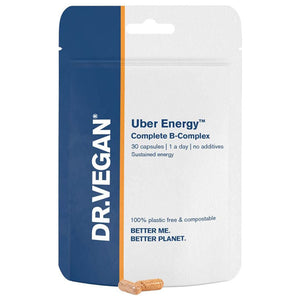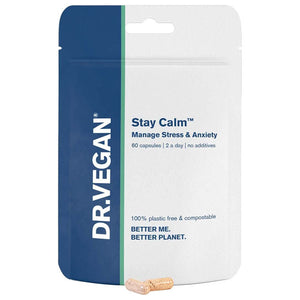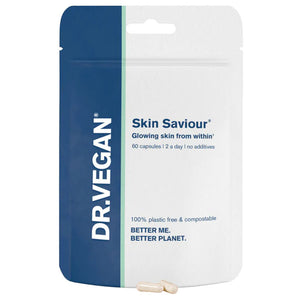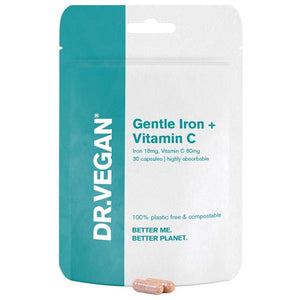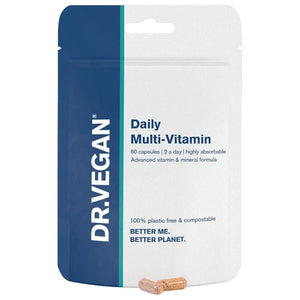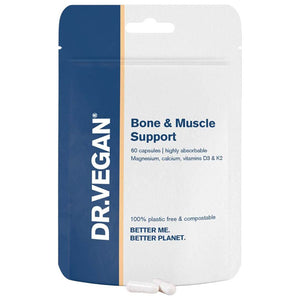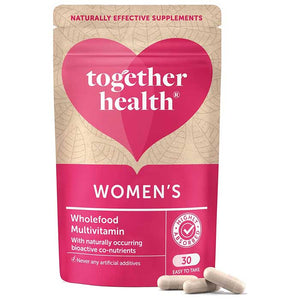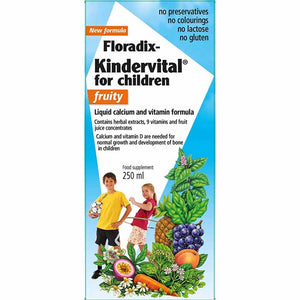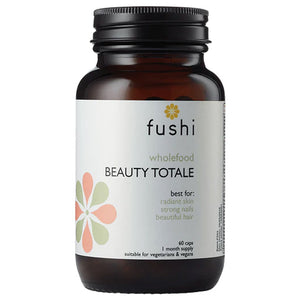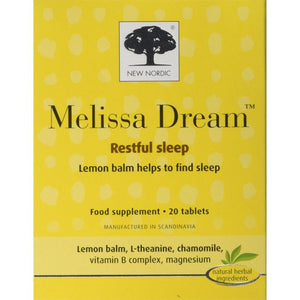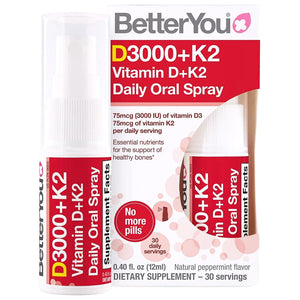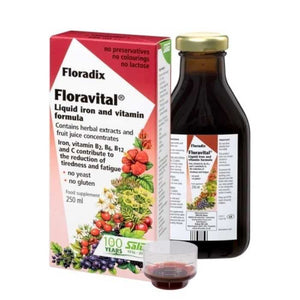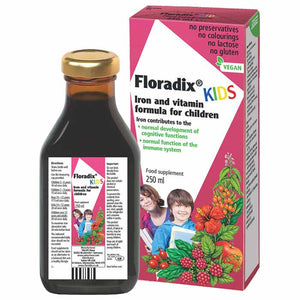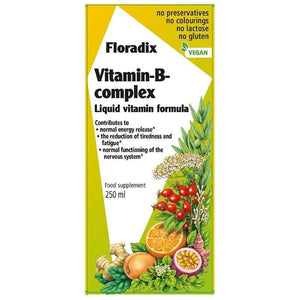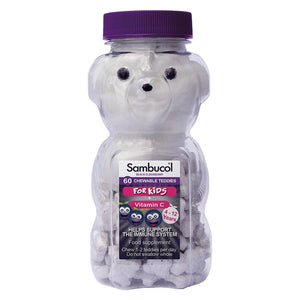Vitamins
So you’ve fully integrated into the plant-based lifestyle. You’re eating vegan, you’re even using plant-based soaps and using toothpaste, but is that it? Not quite! Being vegan is more than just eating greens and bringing a reusable bag when shopping. Being vegan also means living your best life as happy and as healthy as possible! You not only should be helping the planet but also yourself! Read more
Sort By ×
- Featured
- Price, low to high
- Price, high to low
- Alphabetically, A-Z
- Alphabetically, Z-A
- Date, old to new
- Date, new to old
- Best Selling
To live a happy and healthy life you’ll need great relationships with your family, wonderful friends, a meaningful job, and proper nutrition. Granted, there are some nutrients lacking in certain foods. But you can always balance that out by taking some plant-based vitamins!
The best time to start is now. Take a closer look at what you’re eating or maybe head on over to your doctor to see what nutrients you may be missing out on. Once you find out what you need to add to your diet, you can head on over to our Vitamins Page and check out your supplements.
What Are The Best Vitamins I Should Be Taking?
From the outside looking in, people might come to the conclusion that the diet lacks protein. After all, proteins are synonymous with meat. That’s actually not true! There are tons of plant-based protein sources out there like oats and tofu. Their next guess might be iron. Well, while that’s sort of true, you can actually get vitamins to help out with this. But, there are some iron-rich sources that are plant-based like lentils, chickpeas, beans, and tofu.
Surprisingly, need plant-based vitamins to get their daily dose of Vitamin D and Vitamin B12. Going into vitamin D, did you know that there are actually two kinds? You can get Vitamin D from animal-based food like fish and eggs. You can also get them plant-based. That’s why it’s imperative to buy vitamins instead of just grabbing one off the shelf.
As for Vitamin B12, and vegetarians are prone to its deficiency. Considering this is responsible for our metabolism and some nervous system function, we definitely need some supplemental vitamins whenever possible!
What Kinds of Vitamins Can I Get?
- Liquids or Syrups
If you’re not one to chew on tablets or prefer not to take capsules, liquids are quite effective. Plus, taking them with your favourite drink makes it easier. One such example is this bottle of Liposomal Vitamin C by Well Actually.
- Capsules or Tablets
These are a great way to take vitamins on the go. These don’t add to your liquid allowance when you’re taking flights so they are hassle-free! Plus you don’t have to worry about the bottle breaking and potentially spilling all over your packed clothes. Since you’re travelling, you need to boost your immune system - and that’s what New Nordic’s B-Energy™ Mega Strength Capsules intend to do.
- Gummies
Gummies are a great way to introduce your kids to the habit of taking plant-based vitamins like Vitabiotics’s Wellkid Peppa Pig Vitamin D Soft Jellies. Adults can have gummies too if they want! If you don’t want to bother with a glass of water to help gulp capsules down, you can buy vitamins like Haliborange’s Vitamins.
- Powders
Powders are great for adding nutrients to your smoothies or beverages. They’re easy to mix - you can even just add some to a glass of water and drink away! If you’re looking for a powder to start off with, how about Biethica’s Vitamin C Powder?
Frequently Asked Questions
Do Need to Take Vitamin Supplements?
Most likely, yes! Everyone, not only , needs to have some supplemental vitamins in order to stay in good health. The need to take supplements shouldn’t be looked down upon.
Sometimes, the food that’s in front of us doesn't provide the nutrition we need. That’s where plant-based vitamins come in!
Is it necessary to take supplemental calcium if I don’t eat dairy?
If you find that your diet is lacking in calcium, you should take the necessary steps. There are some calcium-rich foods like bok choy, kale, chickpeas, and even plant-based milk (only if they’re fortified). These, however, may not be comparable to the calcium content found in cow’s milk.
And, yes, there are supplements you can take to help you with this!
What about the vitamins that I, as a , can't get from a diet?
We mentioned two, maybe three earlier. But the list can go on! Aside from Vitamin D, Vitamin B12, and iron, the diet may be missing calcium, zinc, and omega-3 fatty acids as well.
You may also be surprised to know that an iodine deficiency may also be possible on a diet.
Are there any side effects of taking vitamin supplements?
That depends on you, your diet and the manufacturer of the plant-based supplements. It’s important to not overdo it. Let us explain. It depends on you in that if you're already getting a healthy amount of zinc (for example) and then taking more zinc via supplements, that would surely have some effects! As for the manufacturer, not all makers of vitamins are the same. Check to see their labels if they indicate any potential ones!
While side effects can be scary to think of - what’s scarier is actually having less of the nutrients you actually need. Don’t be afraid of supplements. They’re there to help!
How can someone on a diet get enough Vitamin B?
Your dark, leafy greens are your best food sources of Vitamin B. They are spinach, kale, and broccoli. You can also get Vitamin B by eating beans, lentils, sunflower seeds, almonds, and bananas.
Or you can also get supplements that will help you get your needed Vitamin B intake. They’re even more convenient!
